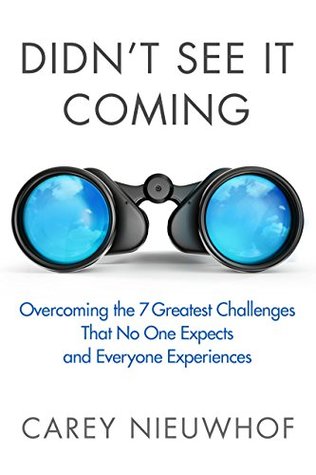More on this book
Community
Kindle Notes & Highlights
Read between
June 12 - August 20, 2019
Cynicism begins not because you don’t care but because you do care.
There’s a gnawing hollowness that comes with success. And there’s a desperate brokenness that comes from doing life with flawed people.
Past pain will become future hurt if you let it. So you don’t let it.
When you close your heart to people, you close your heart to God.
Cynicism is not always a conscious decision, but it’s a decision nonetheless. It’s the decision you make to stop hoping, trusting, and believing.
God understands our world.
Your past isn’t your future.
An incredibly effective antidote to cynicism is curiosity.
Busyness is the enemy of wonder,
If you listen longer than most people listen, you’ll hear things most people never hear.
When your life becomes focused on what you know and what you can control, dreams die.
The subtle compromises we make day after day—the half truths, the rationalizations, the excuses—create a gap between who we are and who we want to be.
All the competency in the world can’t compensate for a lack of character.
You may be smart, but if people don’t like you, they won’t want to work with you.
Your competency leaves the first impression, but your character leaves the lasting one.
The crowd is intrigued by your competency, but your family and close friends are influenced by your character.
you bring who you are into everything you do.
Compromise is in you, and life brings it out of you.
Watch for any gap you see between your words and your deeds.
Compromise eventually leads to cover-up.
We all start misleading and misinforming others whenever we feel ashamed of what we’ve done or who we’ve become.
Any value system worth having is focused on others, not self.
You can develop your character in the same way you develop a muscle: by exercising it.
The antidote to compromise is simply this: work twice as hard on your character as you do on your competency.
Blame is the opposite of responsibility. Every time you blame others, invent justifications, or craft a fresh excuse, you evade responsibility.
As soon as you start to admit that you’re the problem, you start to make progress.
One of the best things you can do to overcome your hypocrisy is to humble your talk and accelerate your walk.
The time you spend working on your character is an investment in yourself and in the people who matter most to you.
He didn’t define maturity by how much you know. He defined it by how much you love.6 Working on your character twice as hard as you do on your competency will lead you into the place where God’s love regenerates everything about you.
Solitude is a gift from God. Isolation is not—it’s a tool of the Enemy.
Technology does a good job of revealing what’s already inside you. If you’re narcissistic by nature, social media gives you a new platform to express your self-centeredness. If you lean toward workaholism, you’ll always have access to your office as you carry your devices with you everywhere. If you’re inclined to look outside your marriage or current relationship for intimacy, it’s easier than ever before and takes far less courage than it used to. Technology didn’t create these issues. It just reveals them and amplifies them. What we’re facing is not a technology problem but a human problem.
We’ve created things we don’t fully understand and are not sure how to relate to. And it’s changing us.
Questions are the turning points for great conversation and intriguing connections among people.
Conversation has become a press conference with whomever happens to be listening.
nobody really makes mistakes anymore. There’s always a scapegoat.
Healthy self-esteem is developed when praise is linked to actual accomplishment and effort, Elmore says. This is a much healthier understanding of self because it acknowledges the vital role that failure, struggle, and confession play in life.
You won’t address what you don’t confess.
Our lack of confession disconnects us from God, from one another, and even from ourselves.
The challenge is not to resist change but to learn how to thrive in the midst of it.
The challenge is to stop blaming others and to take responsibility for your own sins. Blame is insidious, as it will keep showing up in your mind to convince you that nothing is your fault.
When are your past circumstances going to stop defining your present and future? At a certain point, your circumstances have to stop functioning as excuses.
when are you going to stop focusing on what you can’t control and instead start focusing on what you can control?
Explanations are the fuel of the curious, the brave, and the driven. When you search for an explanation as to why you have a hard time trusting or opening your heart to people, you can make progress. You’re using the past as a stepping-stone into the future, not as a barricade against it.
Self-pity chisels into stone what discouragement whispers.
you can make excuses or you can make progress, but you can’t make both.


